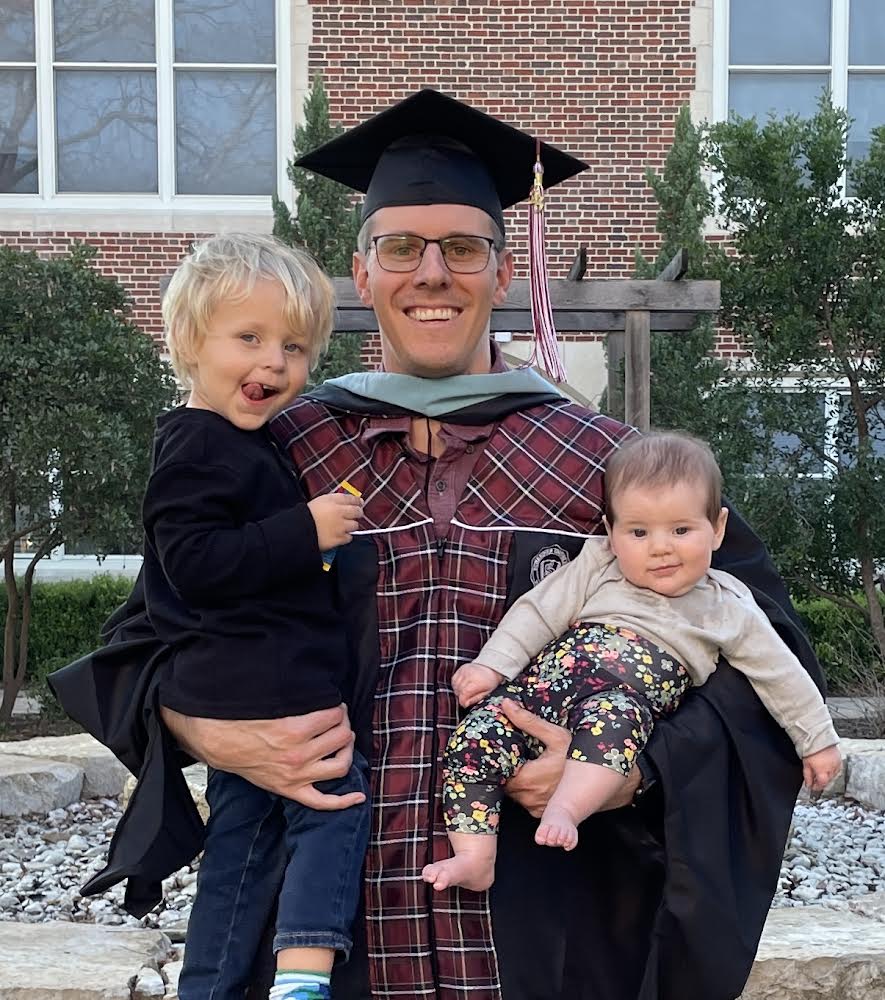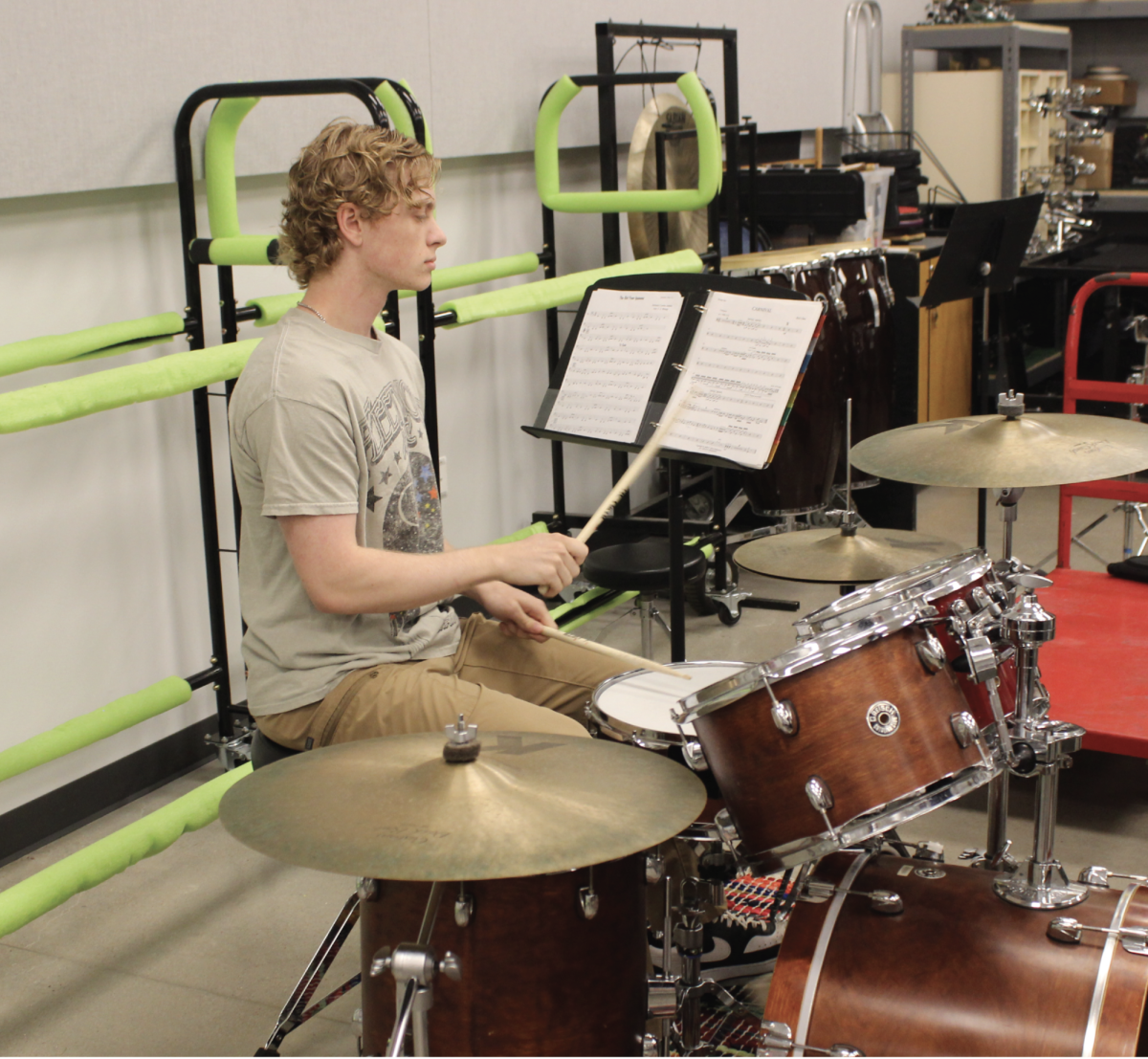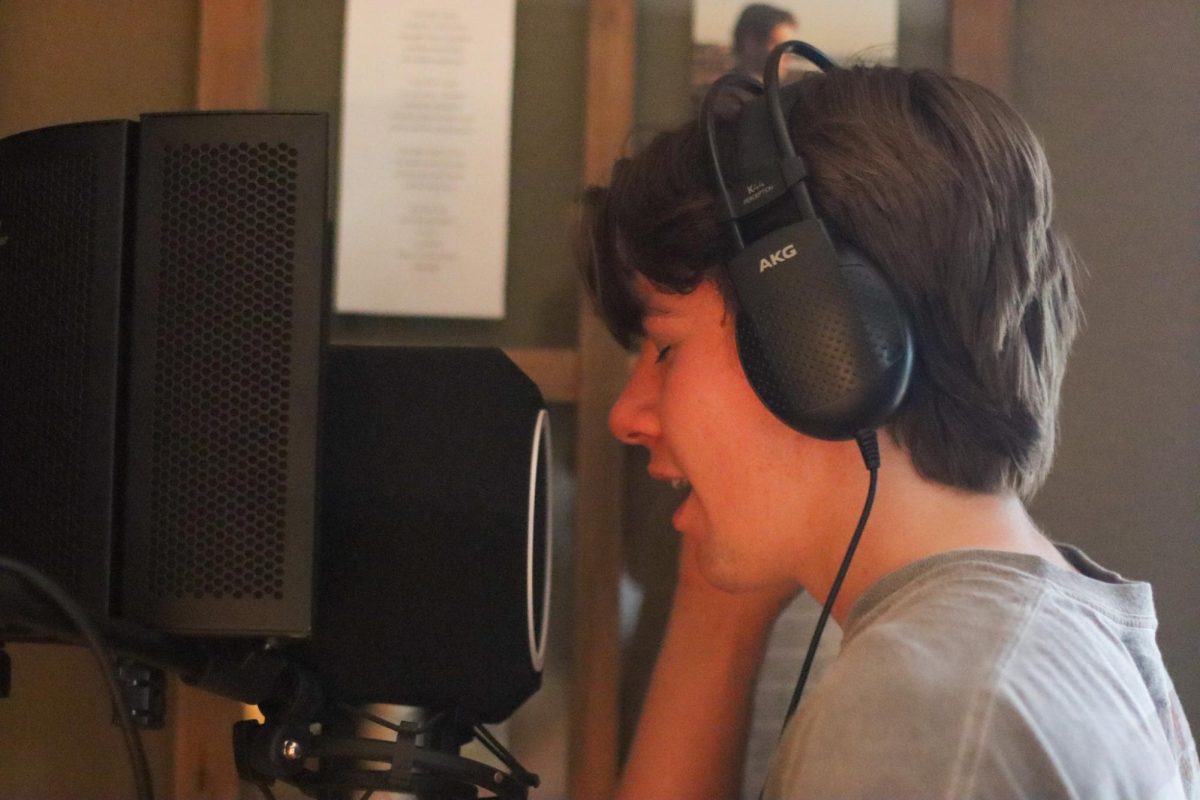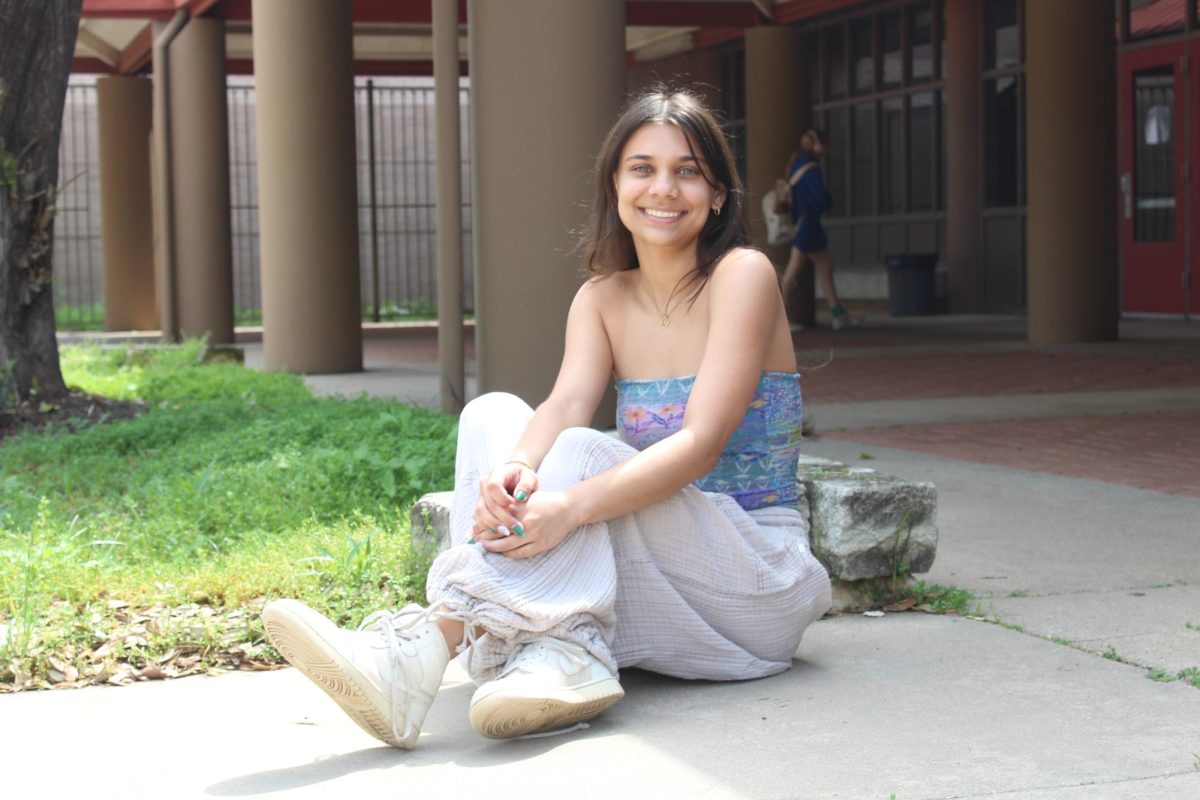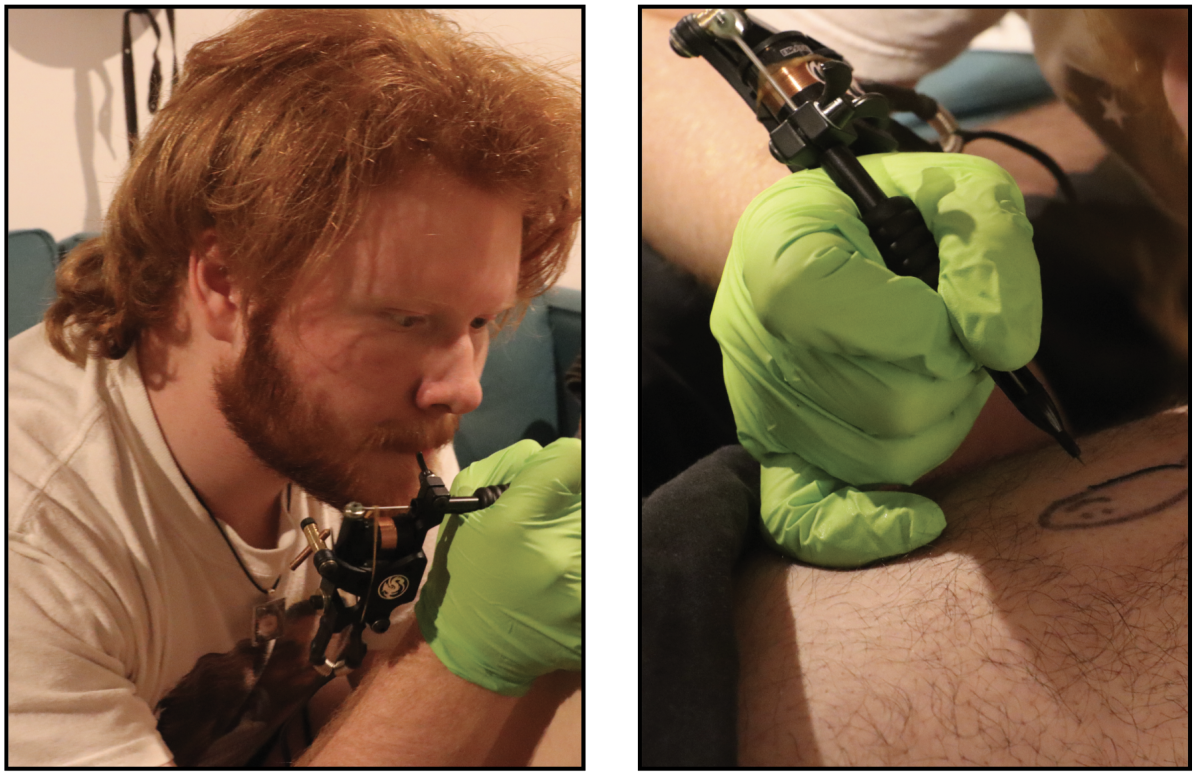Trading in red ink for books and papers, teachers take on being taught, going back to school to earn a higher education, to provide more opportunities for their future.
Higher education, like earning a master’s degree or a PhD, can provide a wide array of opportunities for teachers and is something that multiple Bowie teachers have decided to take on, on top of teaching themselves.
Dalton Pool, who teaches US History and AP US Government and Politics, is currently working on certifying after recently finishing his graduate program, while other teachers like Caren Garza, an Algebra Two and AP Calculus teacher, and Wendy Uzzle who, teaches AP US History already have their master’s degree.
“Before pursuing a masters degree in education, I held a bachelor’s degree in history and a teaching certificate,” Pool said. “I just received my masters degree in education, and I am currently taking courses to procure a principal-ship certification, which would let me eventually hold an administration title.”
With the goal of becoming a vice principal within the next five years, continuing to work in the education field is important to Pool.
“I only see myself in the classroom for so long,” Pool said. “Going back to school opens up a lot of opportunities as far as the jobs that are available to me within education.”
Working towards his masters degree also brought along more information that Pool didn’t even realize he needed.
“Having taught for ten years I didn’t think there was much for me to learn and I couldn’t have been more wrong,” Pool said. “I’ve learned so many new teaching strategies and ways to look at the profession”
Not only did Pool learn new things to help him in the classroom but also things that could help him with day-to-day life and situations on campus.
“I learned a lot about school policy and law,” Pool said. “Not only will it be vital to my career path but it’s still helpful when I’m in the classroom to have a deeper understanding of how to deal with situations.”
While pursuing higher education will provide an opportunity for Pool to enter into an administrator role, it will also provide him with other benefits
“I have two little kids at home I need to provide for,” Pool said. “Being able to make more money while still doing something meaningful is the best case scenario for me and my family.”
Uzzle who didn’t go straight into education after graduating from college originally graduated with a degree in sociology.
“I was an alternatively certified teacher,” Uzzle said. “I had worked outside of education for a couple of years before deciding I wanted to become a teacher.”
Once Uzzle decided that she wanted to teach and be in the classroom, she jumped straight back into school.
“I started working on my masters degree in special education and my teaching certification,” Uzzle said. “I ended up getting my teaching certification first and then my masters.”
Like Pool, Uzzle hopes to one day have a job that’s not specifically in the classroom teaching.
“I always thought I would leverage my special education background and my general experience, and make those two into a new role,” Uzzle said. “This year I’m in a new position as an instructional coach and it helped to give me a broader school perspective.”
Garza, who also got her degree earlier on in her education career, got it for a specific reason while working at another school.
“I knew that I wanted to teach higher level courses,” Garza said. “At my old school we had kids taking college courses on campus, so instead of having a professor come in, anyone who has a masters degree could teach those classes.”
Her love of teaching math is shown with her love of learning math. Garza got her bachelor’s degree in Science, with a major in math and a minor in middle school math and then got her masters degree in Science and applied mathematics.
“I was taking semester class in between and also teaching throughout the year,” Garza said. “It was really rigorous and took a long time to finish, but I graduated with my masters and started teaching those higher level courses that I strived to.”
While Garza is proud of her education and is glad she has the opportunity to teach more advanced classes, she also is aware that for every person, higher education has its different reasons and benefits.
“I think it’s all about what you want to teach or whether or not you want to stay in the classroom,” Garza said. “For me it really was about teaching other classes higher level math classes.”
Garza acknowledges that not everyone returns to school with the same hope of staying in the classroom.

“I think for some teachers that want to get outside of the classroom and become an administrator its benefits are different,” Garza said. “Getting that degree then provides you with the opportunity to obtain the type of job you want, while mine was more about teaching the classes I wanted to.”
Uzzle believes that getting higher education can help you understand numbers, where they are coming from and why they are happening.
“It’s helped me learn how to analyze data,” Uzzle said. “Looking at school performance data and studying it helps you understand how you can change the data and numbers along with why they are important.”
Uzzle also believes that numbers in the teaching field and understanding them isn’t the only strength of obtaining a higher degree.
“It helped me especially when I was working in special education,” Uzzle said. “It really helped me understand the population and how to provide appropriate support.”
While Uzzle and Garza are not sure if they will go into holding other positions in the future like online teaching, or another type of role on campus, their degrees have provided them with a large amount of knowledge.
“I think a lot of teachers do their administrative degree and I think it helps provide them with a with a broader view of the school system,” Uzzle said. “Giving a school wide perspective rather than just their classroom or program, and even if they don’t go into administration I think it has its benefits.”




